![]() Current Issue
Current Issue
(Fall 2005)
Speed's Newest Faculty Bring Fresh Expertise
Why do some musicians develop a crippling hand condition known as focal dystonia?
Can silk be used to improve skin tissue regeneration?
How can tiny MEMs devices be used in medicine and other fields?
These are a few of the questions being asked by a diverse new group of Speed School faculty.
The new faculty members include:
R. Eric Berson
Berson is an assistant professor in chemical engineering.
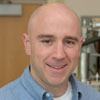
He was an assistant research professor in the department prior to his new post.
Berson received his master's degree and Ph.D. in chemical engineering at U of L. Before that, he earned a bachelor's degree in chemical engineering from Florida State University.
After receiving his Ph.D., Berson worked in private industry in Louisville, at Waukesha Cherry-Burrell and at Carrier Vibrating Equipment.
His research field is biochemical engineering with specific interests in biomass and alternative fuels.
Zhihui Sun
Sun is an assistant professor in civil engineering. The Speed post is her first faculty appointment.

Sun recently received her Ph.D. in civil engineering from Northwestern University in Evanston, Ill. There, she conducted research at the Center for Advanced Cement-Based Materials. Before that, Sun earned a master's degree from National University of Singapore. Sunís studies non-destructive testing methods to examine the structure and behavior of cement and other construction materials.
Shamus McNamara
McNamara is an assistant professor in electrical and computer engineering. The Speed post is his first faculty appointment.
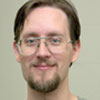
He earned his Ph.D. in electrical engineering from the University of Wisconsin-Madison in 2002. He spent two years as a post-doctoral student at the Wireless Integrated Micro Systems (WIMS) Center at the University of Michigan in Ann Arbor. He also co-founded PicoCal, Inc., a startup company in Ann Arbor based on research performed at the University of Michigan.
McNamara's research interests are in microelectromechanical systems (MEMS) devices and sensors and actuators.
Joris Leijnse
Leijnse is an assistant professor in mechanical engineering.
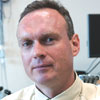
Before coming to U of L, Leijnse was a researcher at the Kleinert Institute for Hand & Microsurgery in Louisville. He obtained his Ph.D. in hand biomechanics in the Netherlands.
Leijnse has spent many years studying a hand condition common to musicians known as Focal Dystonia, which renders hands incapable of full motion.
In addition to continuing his biomechanics studies of the condition, Leijnse's duties will include pursuing external grant funding to support his position. For now, the post is a one-year term appointment. Leijnse will work in offices on both the Belknap and Health Sciences Center campuses.
Naira Camphell-Kyureghyan
Campbell-Kyureghyan is an assistant professor in industrial engineering.

She received her Ph.D. in ergonomics and biomechanics at Ohio State University in 2004. Before that, in Yerevan, Armenia, she earned a master's degree in industrial engineering from the American University of Armenia and a master's and doctoral degree in electrical and control engineering from the State Engineering University of Armenia.
Campbell-Kyureghyan adds to the IE department's strengths in ergonomics research and promises interdisciplinary study ties with the new bioengineering department.
Sunderesh Heragu
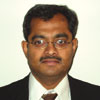
Heragu is a professor in industrial engineering. He is the new Duthie Chair in Engineering Logistics, replacing Don Taylor who recently became the chair of industrial engineering at Virginia Tech. Department chair John Usher says Heragu will build on Taylor's successes at attracting logistics research projects.
Heragu was professor in the department of Decision Sciences and Engineering Systems at Rensselaer Polytechnic Institute in Troy, N.Y.
Among his degrees are a Ph.D. in industrial engineering from the University of Manitoba in Winnipeg, Canada, and a master's of business degree from the University of Saskatchewan in Saskatoon, Canada.
He has written a book, Facilities Design, and authored or co-authored more than 100 articles. He has won several awards for his work.
His research interests include the design, analysis and modeling of intelligent and next-generation manufacturing systems.
Andrea Gobin
Gobin is an assistant professor in bioengineering. The Speed post is her first faculty appointment.
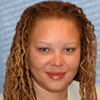
She is finishing her postdoctoral fellowship at the University of Texas MD Anderson Cancer Center in Houston.
She received a Ph.D. in bioengineering at Rice University in Houston in 2003. She holds a bachelor's degree in biomedical engineering from Rensselaer Polytechnic Institute in Troy, N.Y. Her recent research includes development of novel biomaterials from silk and of a laminated skin-mucosal graft to replace skin lost during surgical cancer treatment. At MD Anderson's Laboratory of Reparative Biology and Bioengineering, she studied biomaterials for use in tissue regeneration.
Palaniappan Sethu
Sethu is slated to begin his assistant professorship in bioengineering on Jan. 1, 2006. The Speed post will be his first faculty appointment.
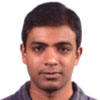
Sethu received both his master's degree and his Ph.D. in biomedical engineering from the University of Michigan in 2000 and 2004, respectively. He earned a bachelor's degree in mechanical engineering from PSG College of Technology in India in 1998. He is a postdoctoral research fellow in the Center for Engineering in Medicine at Massachusettes General Hospital in Boston. He has joint appointments at Harvard Medical School and at Shriners Burns Hospital in Boston. His studies involve the development of microfluidic systems for use in biology and medicine.